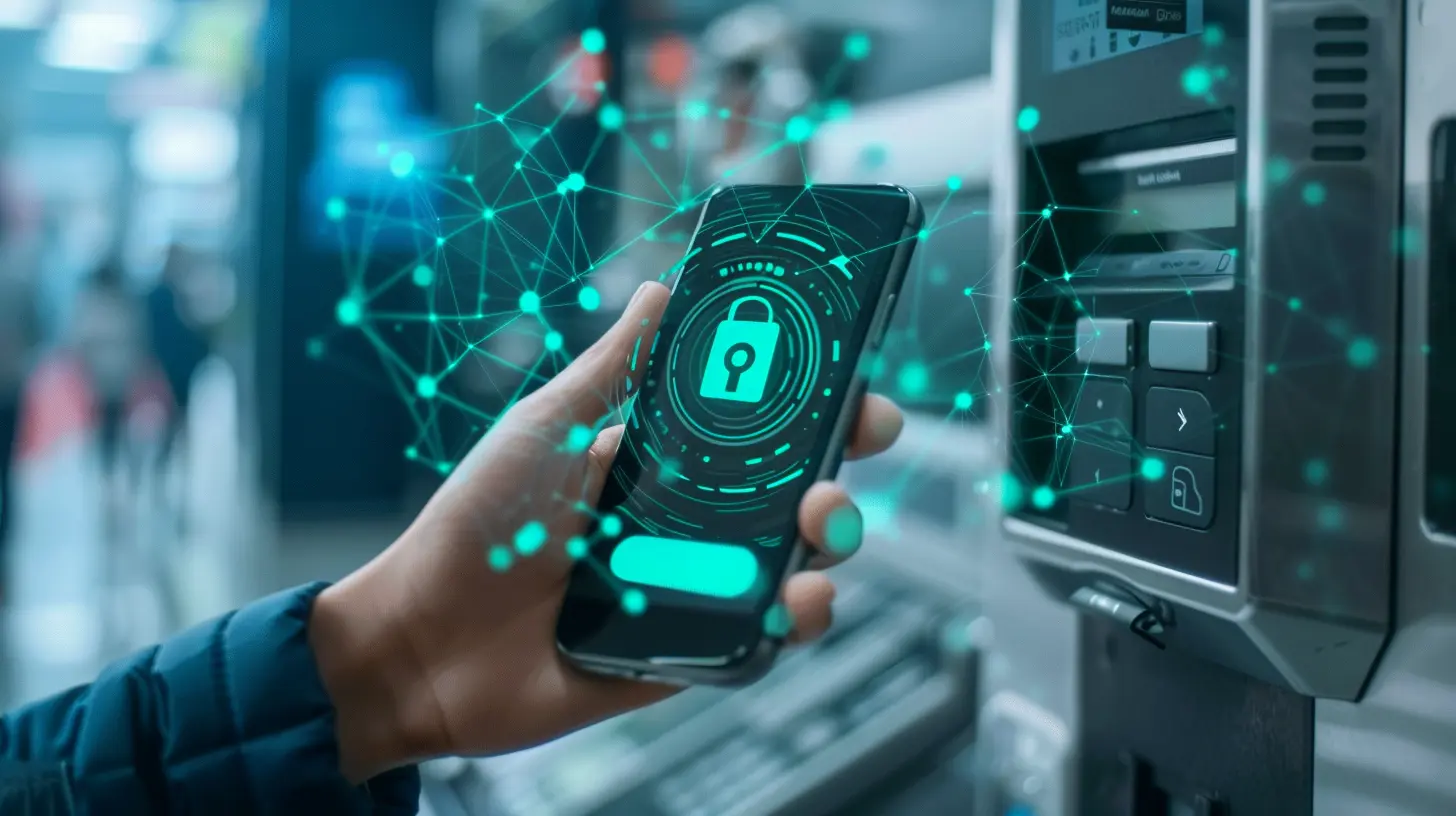How Digital Identity Solutions are Transforming Fintech Security
10 October 2025
The world of finance is evolving at breakneck speed, and with it, the technology that supports financial transactions has also taken massive leaps. But as the fintech industry continues to grow, so do the threats that come with it. That's where digital identity solutions come in to save the day.
Think about it: You wouldn’t leave your front door unlocked in a neighborhood where theft is rampant, right? Well, the same principle applies to fintech security. In this digital age, it’s vital to keep financial systems locked up tight. And digital identity solutions are the key to that lock. But how exactly are these solutions transforming fintech security? Let’s dive into the details.

What Are Digital Identity Solutions?
Before we go any further, let’s clear up exactly what we mean by digital identity solutions. Simply put, a digital identity is a set of credentials (like usernames, passwords, biometrics, etc.) that prove you are who you say you are in the digital world. But more than just a password, digital identity solutions use advanced technologies—like biometrics, AI, and blockchain—to create robust security mechanisms.In the fintech world, digital identity solutions are used to verify users, secure transactions, and prevent fraud. They’re like the digital equivalent of showing your passport to prove you’re you, except they’re way smarter and harder to forge.

The Rise of Fintech and Security Challenges
Let’s be real, fintech is booming. From mobile banking apps to peer-to-peer lending platforms, fintech services are becoming a part of our everyday lives. But with that rise comes a whole new set of challenges. Cybercriminals are getting more sophisticated, and they’re targeting the very platforms that are supposed to make our financial lives easier.In a world where data breaches and identity theft are a daily threat, fintech companies must prioritize security. Failure to do so can lead to catastrophic financial losses, not just for companies but for consumers as well. That’s where digital identity solutions come into play.

How Digital Identity Solutions Strengthen Fintech Security
1. Reducing Fraud with Biometric Authentication
One of the most effective ways digital identity solutions are transforming fintech security is through biometric authentication. By using unique human traits like fingerprints, facial recognition, or even voice patterns, fintech platforms can ensure that only the rightful user has access to their account.Gone are the days when a hacker could easily crack a password and gain access to sensitive financial data. Biometrics make it way harder (if not impossible) for cybercriminals to impersonate someone else. After all, no two people have the same fingerprint, right?
Take Apple Pay or Google Pay, for example. These platforms use biometric data (like Face ID or fingerprint scanning) to verify transactions. It’s not just about convenience; it’s about making sure the person making the transaction is truly who they claim to be.
2. Multi-Factor Authentication (MFA) to Add Extra Layers
Another game-changer in fintech security is Multi-Factor Authentication (MFA). It’s not enough to just have a password to access your bank account anymore. MFA requires users to provide two or more verification factors before they can log in or make a transaction.For example, you might enter your password and then receive a text message with a one-time code to confirm your identity. Or you might scan your fingerprint and also be required to answer a security question. It’s like putting two locks on your door instead of one—double the security, double the protection.
MFA can drastically reduce the risks of unauthorized access since it’s much harder for hackers to compromise multiple forms of verification at once. And let’s be real, it’s a small inconvenience for a massive boost in security.
3. Blockchain Technology for Unbreakable Security
When you hear the word blockchain, you probably think of cryptocurrencies like Bitcoin, right? But blockchain has far-reaching applications beyond just digital currencies, particularly in the realm of fintech security.Blockchain technology is a decentralized ledger that records transactions across multiple computers. What makes blockchain so great for security is that once data is recorded on the blockchain, it’s nearly impossible to alter or hack. This makes it a perfect tool for securing digital identities in fintech applications.
By using blockchain, fintech companies can create tamper-proof records of each transaction, ensuring transparency and security. Imagine a world where no one can tamper with your financial data because it’s locked in a digital vault that’s nearly impossible to break into. That’s the magic of blockchain in fintech security.
4. Artificial Intelligence (AI) for Real-Time Threat Detection
Digital identity solutions are also tapping into the power of Artificial Intelligence (AI) to detect and prevent fraud in real-time. AI algorithms can analyze patterns and behaviors associated with user activity to flag any suspicious behavior.For instance, if someone is trying to log into your account from a different country or at an odd time of day, AI can instantly detect this anomaly and either flag it for review or automatically block access. It’s like having a 24/7 security guard watching over your digital identity.
Even more impressive, AI-powered identity systems can learn and adapt over time. The more data they process, the smarter they get at identifying suspicious behavior. This makes fintech platforms proactive rather than reactive when it comes to preventing fraud.
5. Self-Sovereign Identity (SSI) for User Control
One of the most exciting advancements in digital identity solutions is the concept of Self-Sovereign Identity (SSI). In the traditional model, your personal data is stored and managed by third parties (like banks or government agencies). But with SSI, you own and control your digital identity.SSI is like a digital wallet that holds all your personal credentials in one place, and only you decide who gets access to it. This not only gives users more control over their data but also minimizes the risk of massive data breaches. If you don’t store your data with a third party, there’s nothing for hackers to steal!
For fintech companies, SSI is a game-changer when it comes to security and user privacy. It creates a trustless system where users can verify their identity without having to rely on intermediaries. It’s the ultimate form of decentralization, and it’s transforming how we think about identity in the digital age.

The Benefits of Digital Identity Solutions in Fintech
Now that we’ve covered the different ways digital identity solutions are transforming fintech security, let’s take a look at the overall benefits:1. Enhanced User Experience
Security doesn’t have to come at the cost of convenience. Digital identity solutions like biometrics and MFA make it easier for users to access their accounts quickly without sacrificing security. Who wants to remember a dozen different passwords when you can just scan your face, right?2. Increased Trust
Trust is the backbone of the fintech industry. If customers don’t feel that their data and money are safe, they’ll take their business elsewhere. Digital identity solutions help build trust by ensuring that users’ data is protected and that only authorized transactions are allowed.3. Compliance with Regulations
With regulations like GDPR and PSD2 requiring stricter security measures, digital identity solutions help fintech companies stay compliant. By implementing robust authentication and verification methods, these companies can avoid hefty fines and ensure they meet legal requirements.4. Reduced Fraud and Financial Losses
At the end of the day, security breaches lead to financial losses. Whether it’s through identity theft, account takeovers, or fraudulent transactions, the costs can add up quickly. By using advanced digital identity solutions, fintech companies can significantly reduce the risk of fraud and save millions in potential losses.Challenges in Implementing Digital Identity Solutions
Of course, it’s not all sunshine and roses. Implementing digital identity solutions comes with its own set of challenges.1. Cost and Complexity
Let’s face it—adopting these advanced technologies isn’t cheap. Fintech companies need to invest in infrastructure, training, and ongoing maintenance to effectively implement digital identity solutions. For smaller companies, this can be a hurdle.2. Privacy Concerns
While digital identity solutions aim to improve security, they also raise concerns about user privacy. Collecting biometric data or using blockchain to store personal credentials can make users feel uneasy. Fintech companies need to strike a careful balance between security and privacy.3. User Adoption
Not all users are tech-savvy, and some may resist adopting new security measures like biometrics or MFA. Companies need to educate their users on the importance of these solutions and make the onboarding process as smooth as possible.
The Future of Fintech Security
So, what does the future hold for fintech security? It’s clear that digital identity solutions will continue to play a pivotal role. As new threats emerge, the technology behind digital identities will only become more sophisticated.We can expect to see even more advanced biometric methods, greater use of blockchain, and AI systems that are smarter and faster at detecting fraud. Self-sovereign identities may become the norm, giving users more control over their personal data. And as fintech security evolves, so too will the trust and confidence of consumers in these platforms.
Conclusion
In a world where cyber threats are constantly evolving, fintech companies must stay one step ahead. Digital identity solutions are transforming the way we think about security, offering stronger, more reliable protection than ever before. From biometric authentication to blockchain and AI, these technologies are making it harder for cybercriminals to wreak havoc on financial systems.As the fintech industry continues to grow, we can expect digital identity solutions to play an even more prominent role in shaping the future of security. After all, in the digital world, your identity is your most valuable asset—so why not protect it with the best tools available?
all images in this post were generated using AI tools
Category:
FintechAuthor:

Reese McQuillan
Discussion
rate this article
1 comments
Christina Brown
Digital identity solutions are revolutionizing fintech security by enhancing user authentication, reducing fraud, and building trust, ultimately fostering a more secure and efficient financial ecosystem.
October 13, 2025 at 2:41 AM

Reese McQuillan
Thank you for your insightful comment! I completely agree—digital identity solutions are indeed pivotal in strengthening security and trust within the fintech landscape.


